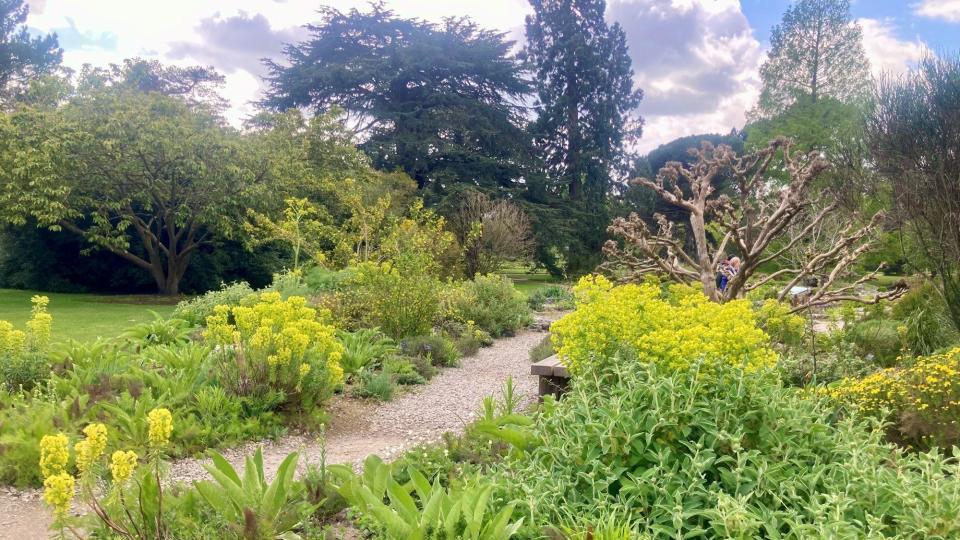Pioneering botanist remembered with new PhD prize
A pioneering botanist who spent much of her career working from a laboratory she set up in her home has been recognised with a new annual PhD prize.
Agnes Arber, who was the first woman botanist to be elected a Fellow of the Royal Society, did "much of her most important work" at her Cambridge lab, after becoming a widowed single parent in 1918.
Prof Sam Brockington, from Cambridge University Botanic Garden, said he hoped the prize "will support the next generation of pioneering botanists, following in the footsteps of Agnes".
Her achievements were also being marked with the unveiling of a blue plaque at her former home on Huntingdon Road.

James Littlewood, chief executive of Cambridge Past, Present and Future, said: "We are very pleased that the 39th plaque will be put on the Cambridge house where Agnes not only lived, but where she set up a laboratory and did so much of her most important work.”
The charity runs the Cambridge and District Blue Plaque Scheme, which recognises people and events that have made a significant impact.
Born Agnes Robertson, in 1879, her first degree was from University College London (UCL) before she studied for a second degree at Newnham College, Cambridge, in 1899.
At this time, the University of Cambridge did not allow women to join practical classes in its laboratories and would not grant them degrees until 1948.
Dr Arber published her first paper in 1903 and returned to UCL as a research student where she was awarded a DSc (Doctor of Science), and moved to Cambridge after marriage in 1909.
She worked for 17 years at Newnham College's Balfour Laboratory, set up in 1884 so woman students and fellows had access to laboratory spaces.
By 1914, women were mostly being admitted to the university's practical classes and the laboratory closed shortly afterwards, at which point Dr Arber was offered its equipment to use at home.
Her only child, Muriel, said: "She snatched time from her writing to do the necessary minimum of domestic things, not the other way round."
She published several books from the 1920s to 1950s and was awarded the Linnean Society gold medal. She died in Cambridge in 1960 aged 81.
Her recognition is one of a number of achievements celebrated this year to mark 300 years since the appointment of the Cambridge University's first professor of botany.
Follow Cambridgeshire news on Facebook, Instagram and X. Got a story? Email eastofenglandnews@bbc.co.uk or WhatsApp us on 0800 169 1830

